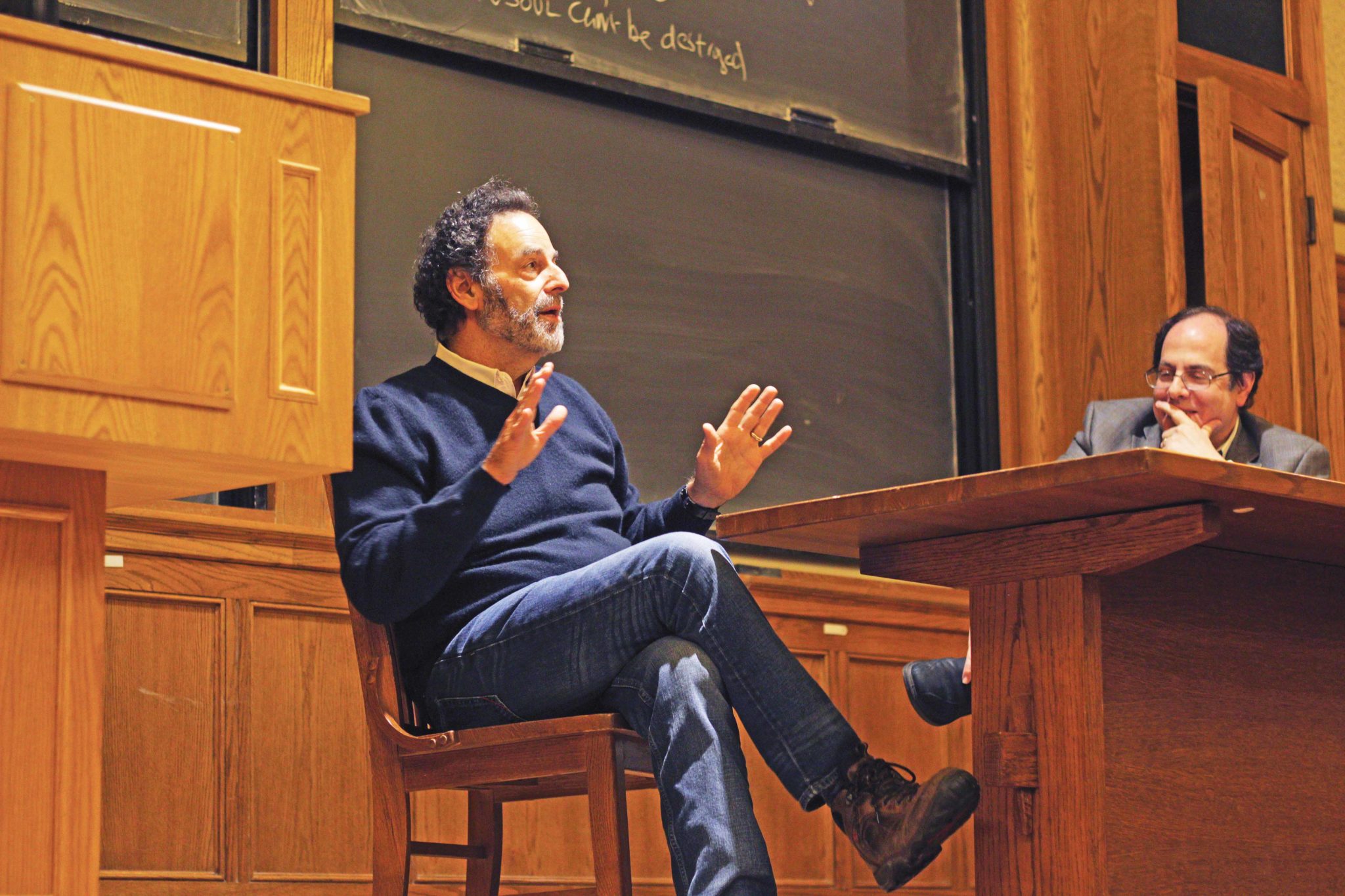
The Yale Politics Initiative hosted its first “Off the Record” master class on Wednesday with Joel Benenson, who played a key role as a pollster in three successful Democratic presidential campaigns — former President Bill Clinton’s LAW ’73 1996 campaign and former President Barack Obama’s 2008 and 2012 bids for office.
The class — which, as the title of the event suggests, was off the record — took place in Branford College at 4 p.m., followed by a public Q&A later in the evening.
In an interview with the News early Wednesday afternoon, Benenson — who most recently worked as chief strategist and pollster on the 2016 presidential campaign of Hillary Clinton LAW ’73 — said the class would focus on the art of polling and draw on case studies from his career. During the Q&A, Benenson discussed how his working-class background informed his career as a pollster and detailed his experiences working with Obama and Hillary Clinton.
“People have a lot of misconceptions about how polling is used, and I think this [class] is a good way for me to really go beneath the surface and show them how it is both an art and a science, probably the art is more important than the science,” Benenson told the News.
Approximately 30 people attended the Q&A, which was moderated by Dean of Social Sciences Alan Gerber ’86.
The Yale Politics Initiative, launched this semester by Paul Gross ’20 and Michael Michaelson ’20, is a nonpartisan program sponsored by the Department of Political Science. The “Off the Record” series aims to bring experts to campus to talk to students about political practice.
“I would emphasize our goal to make this as nonpartisan as possible. We really want it to be about the skills of practicing politics, not about ideology or anything,” Gross said. “[If] someone is really good at winning on the opposite side, we want to hear how they do it too. We don’t want to just hear from the people we agree with.”
During the public event, Benenson discussed how growing up in a working-class family with a single mother and later working for seven years as a beer distributor in Crown Heights — where he said he had conversations with people “living paycheck to paycheck” — informed his successful career as a pollster.
“[These were] the people who make up the vast swath of America, and these conversations stayed in my head and informed how I think about people and their struggles, and that was a formative experience,” Benenson said.
Benenson elaborated in his interview with the News that polling is not about “taking the temperature of the electorate” because such a narrow view can “corrupt the conversation,” but rather about listening to the voting base. He emphasized that one needs to understand “the much bigger landscape on the attitudinal side that people bring to the table in an election.”
He also emphasized that listening is more important than talking and said that Obama’s success stemmed in part from his openness to hearing what other people have to say.
“Our fractured media and our inability to have a common conversation in America is more problematic than any of us recognize,” Benenson said during the event.
Benenson also discussed structural factors that he said contributed to Hillary Clinton’s election defeat. He pointed to the fact that in more than 100 years, no two Democratic presidents have succeeded each other, as well as to what he described as the global “anti-establishment moment.”
Before becoming a pollster, Benenson worked as a journalist in New York. Asked by an audience member how his experiences as a journalist informed his job as a pollster, Benenson replied that the two careers are similar, as they both require creative questions.
Addressing students interested in pursuing careers in national politics, Benenson said that working on a campaign and talking to “real voters” is more valuable than a “snazzy internship.”
Travis Tran ’21, who attended the event, said Benenson’s story inspired him to remain engaged with politics.
“He encouraged me to find ways to interact with [politics] and interact with the community and get involved in any way possible because someone has to be fighting on the front lines and working for the people’s voice,” Tran said.
Future “Off the Record” master classes will feature experts such as Patti Solis Doyle, Frank Luntz, Jeff Roe and Tony Podesta.
Chloe Glass | chloe.glass@yale.edu







